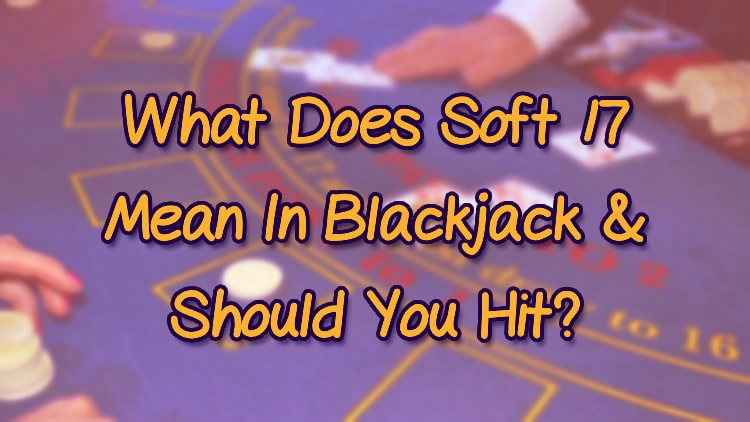
Blackjack can seem a bit confusing if you're just starting out, especially when terms like "soft 17" come into play. Understanding what soft 17 means is important for making smart decisions at the table and understanding a common rule found in most blackjack games.
In this blog post from Slots Baby, we'll break down what a soft 17 is, why it's called "soft", and whether you should hit or stand if you encounter it. This information can help deepen your understanding of the game and enjoy it responsibly.
Let's get started and clear up any confusion you might have.
Difference Between a Soft 17 & Hard 17
In blackjack, the terms "soft 17" and "hard 17" refer to different types of hands you can hold.
A soft 17 is a hand that includes an Ace and totals 17 if the Ace is counted as 11. For example, if you have an Ace and a 6, that's a soft 17. The Ace can be counted as 1 or 11, giving you some flexibility.
A hard 17, on the other hand, is a hand where the Ace is counted as 1, or there's no Ace at all. For instance, having a 10 and a 7 is a hard 17 because there is no flexibility to the hand. Another example could be having a 9, a 3, an Ace and a 4 - here, the Ace cannot be an 11, as the player would go bust.
The key difference is the flexibility of the Ace in a soft 17, which can be counted as 11 or 1 without going bust.
Hard 17s are more rigid and less forgiving if you draw a high card. Understanding this distinction can help you make better decisions when playing blackjack.
Does The Dealer Have To Hit on a Soft 17?
In blackjack, whether the dealer hits on a soft 17 depends on the specific rules of the casino or the game you're playing.
Most casinos have their own house rules, and some require the dealer to hit on a soft 17. This is often stated on the blackjack table itself. If the dealer hits on a soft 17, it can increase the house edge slightly, making it a bit tougher for players.
However, not all casinos follow this rule. In some places, dealers must stand on a soft 17 instead. This generally gives players a slight advantage.
Before you start playing, it's a good idea to check the table rules to know if the dealer hits or stands on a soft 17. This can help you adjust your strategy accordingly.
Should You Hit on a Soft 17?
Deciding whether to hit on a soft 17 can be tricky because the Ace gives you some flexibility. However, the best move often depends on the specific rules of the game and the dealer's upcard.
In general, it's usually a good idea to hit on a soft 17 if the dealer's upcard is strong, like a 9, 10, or Ace. These cards suggest that the dealer is more likely to end up with a strong hand, so hitting could improve your chances of getting a better hand yourself.
If you're playing in a game where the dealer must hit on a soft 17, you might also consider hitting to avoid giving the dealer a potential advantage.
Remember that basic strategy charts can help you make these decisions based on statistical probabilities. They're a useful tool for any player, especially beginners.
Ultimately, knowing when to hit or stand comes down to understanding the odds and the specific game rules you're playing by.
Is It Better If The Blackjack Dealer Stands on a Soft 17?
Whether it's better if the dealer stands on a soft 17 depends on your perspective as a player.
If the dealer stands on a soft 17, it generally works in the player's favour. This is because the dealer has fewer chances to improve their hand, which might improve your odds of winning or at least pushing (tying) the hand.
On the other hand, if the dealer hits on a soft 17, they have a chance to draw a higher card, potentially making their hand stronger. This can increase the house edge slightly, making it harder for players to win.
In most cases, players prefer tables where the dealer stands on all 17s, including soft 17s. It's a small change, but it can make a difference in the long run.
Before you start playing, check the table rules to see if the dealer stands or hits on a soft 17. This information can help you decide which table to play at for the best odds. No matter what table you choose to play out, be sure to gamble responsibly.
